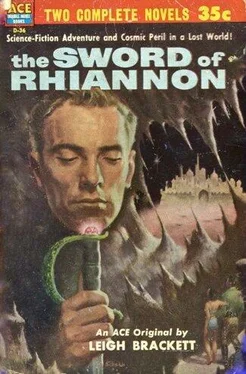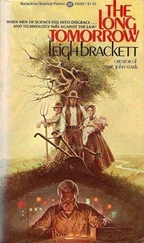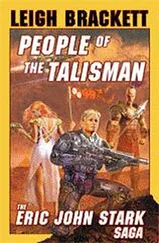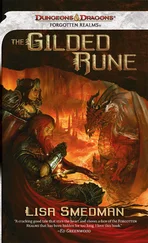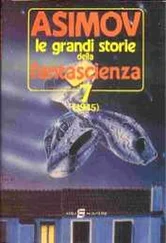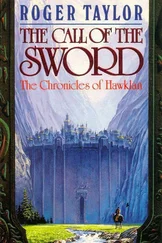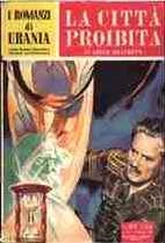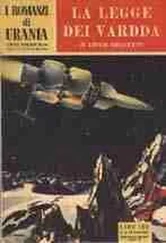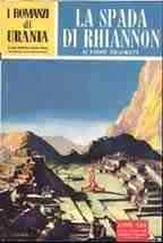Carse said without emotion, “You’re crazy. I have no secret. I bought the sword from a trader.”
Boghaz stared at him for a long moment. He stared very sadly. Then he sighed heavily.
“Think, my friend. Wouldn’t it be better to tell me than to make me force it out of you?”
“There’s nothing to tell,” Carse said harshly.
He did not wish to be tortured. But that odd warning instinct had returned more strongly. Something deep within him warned him not to tell the secret of the Tomb!
And anyway, even if he told, the fat Valkisian was likely to kill him then to prevent him from telling anyone else the secret.
Boghaz sorrowfully shrugged fat shoulders. “You force me to extreme measures. And I hate that. I’m too chicken-hearted for this work. But if it’s necessary—”
He was reaching into his belt-pouch for something when suddenly both men heard a sound of voices in the alleyway outside and the tramp of heavily shod feet.
Outside, a voice cried, “ There ! That is the sty of the Boghaz hog!”
A fist began to hammer on the door with such force that the small room rang like the inside of a drum.
“Open up, there, fat scum of Valkis!”
Heavy shoulders began to heave against the door.
“Gods of Mars!” groaned Boghaz. “That Sark press-gang has tracked us down!”
He grabbed up the sword of Rhiannon and was in the act of hiding it in his bed when the warped planks of the door gave under the tremendous beating, and a spate of armed men burst into the room.
Boghaz recovered himself with magnificent aplomb. He bowed deeply to the leader of the press-gang, a huge black-bearded, hawk-nosed man wearing the same black mail that Carse had seen on the Sark soldiers in the square.
“My lord Scyld!” said Boghaz. “I regret that I am corpulent, and therefore slow of motion. I would not for worlds have given your lordship the trouble of breaking my poor door, especially”—his face beamed with the light of pure innocence—“especially as I was about to set out in search of you.”
He gestured toward Carse.
“I have him for you, you see,” he said. “I have him safe.”
Scyld set his fists on his hips, thrust his spade beard up into the air and laughed. Behind him the soldiers of the press-gang took it up and, behind them, the rabble of Jekkarans who had come to see the fun.
“He has him safe,” said Scyld, “for us.”
More laughter.
Scyld stepped closer to Boghaz. “I suppose,” he said, “that it was your loyalty that prompted you to spirit this Khond dog away from my men in the first place.”
“My lord,” protested Boghaz, “the mob would have killed him.”
“That’s why my men went in—we wanted him alive. A dead Khond is of no use to us. But you had to be helpful, Boghaz. Fortunately you were seen.” He reached out and fingered the stolen ornaments that Boghaz wore around his neck. “Yes,” said Scyld, “very fortunately.”
He wrenched the collar and the belt away, admired the play of light on the jewels and dropped them into his belt-pouch. Then he moved to the bed, where the sword lay half-concealed among the blankets. He picked it up, felt the weight and balance of the blade, examined casually the chasing of the steel and smiled.
“A real weapon,” he said. “Beautiful as the Lady herself—and just as deadly.”
He used the point to cut Carse free of his bonds. “Up, Khond,” he said, and helped him with the toe of his heavy sandal.
Carse staggered to his feet and shook his head once to clear it. Then, before the men of the press-gang could grasp him, he smashed his hard fist savagely into the expansive belly of Boghaz.
Scyld laughed. He had a deep, hearty seaman’s laugh. He kept guffawing as his soldiers pulled Carse away from the doubled-up gasping Valkisian.
“No need for that now,” Scyld told him. “There’s plenty of time. You two are going to see a lot of each other.”
Carse watched a horrible realization break over the fat face of Boghaz.
“My lord,” quavered the Valkisian, still gasping. “I am a loyal man. I wish only to serve the interests of Sark and her Highness, the Lady Ywain.” He bowed.
“Naturally,” said Scyld. “And how could you better serve both Sark and the Lady Ywain than by pulling an oar in her war-galley?”
Boghaz was losing color by the second. “But, my lord—”
“What?” cried Scyld fiercely. “You protest? Where is your loyalty, Boghaz?” He raised the sword. “You know what the penalty is for treason.”
The men of the press-gang were near to bursting with suppressed laughter.
“Nay,” said Boghaz hoarsely. “I am loyal. No one can accuse me of treason. I wish only to serve—” He stopped short, apparently realizing that his own tongue had trapped him neatly.
Scyld brought the flat of the blade down in a tremendous thwack across Boghaz’ enormous buttocks.
“Go then and serve!” he shouted.
Boghaz leaped forward, howling. The press-gang grabbed him. In a few seconds they had shackled him and Carse securely together.
Scyld complacently thrust the sword of Rhiannon into his own sheath after tossing his own blade to a soldier to carry. He led the way swaggeringly out of the hut.
Once again, Carse made a pilgrimage through the streets of Jekkara but this time by night and in chains, stripped of his jewels and his sword.
It was to the palace quays they went, and the cold shivering thrill of unreality came again upon Carse as he looked at the high towers ablaze with light and the soft white fires of the sea that glowed far out in the darkness.
The whole palace quarter swarmed with slaves, with men-at-arms in the sable mail of Sark, with courtiers and women and jongleurs. Music and the sounds of revelry came from the palace itself as they passed beneath it.
Boghaz spoke to Carse in a rapid undertone. “The blockheads didn’t recognize that sword. Keep quiet about your secret—or they’d take us both to Caer Dhu for questioning and you know what that means!” He shuddered over all his great body.
Carse was too numbed to answer. Reaction from this incredible world and from sheer physical fatigue was sweeping over him like a wave.
Boghaz continued loudly for the benefit of their guards. “All this splendor is in honor of the Lady Ywain of Sark! A princess as great as her father, King Garach! To serve in her galley will be a privilege.”
Scyld laughed mockingly. “Well said, Valkisian! And your fervent loyalty shall be rewarded. That privilege will be yours a long time.”
The black war-galley loomed up before them, their destination. Carse saw that it was long, rakish, with a rowers’ pit splitting its deck down the middle and a low stern-castle aft.
Flamboys were blazing on the low poop deck back there and ruddy light spilled from the windows of the cabins beneath it. Sark soldiers clustered back there, chaffing each other loudly.
But in the long dark rowers’ pit there was only a bitter silence.
Scyld raised his bull voice in a shout. “Ho, there, Callus!”
A large man came trunting out of the shadowy pit, negotiating the catwalk with practiced skill. His right hand clutched a leathern bottle and his left a black whip—a long-lashed thing, supple from much using.
He saluted Scyld with the bottle, not troubling to speak.
“Fodder for the benches,” Scyld said. “Take them.” He chuckled. “And see that they’re chained to the same oar.”
Callus looked at Carse and Boghaz, then smiled lazily and gestured with the bottle. “Get aft, carrion,” he grunted and let the lash run out.
Carse glared at him out of red eyes and snarled. Boghaz gripped the Earthman by the shoulder and shook him.
Читать дальше
